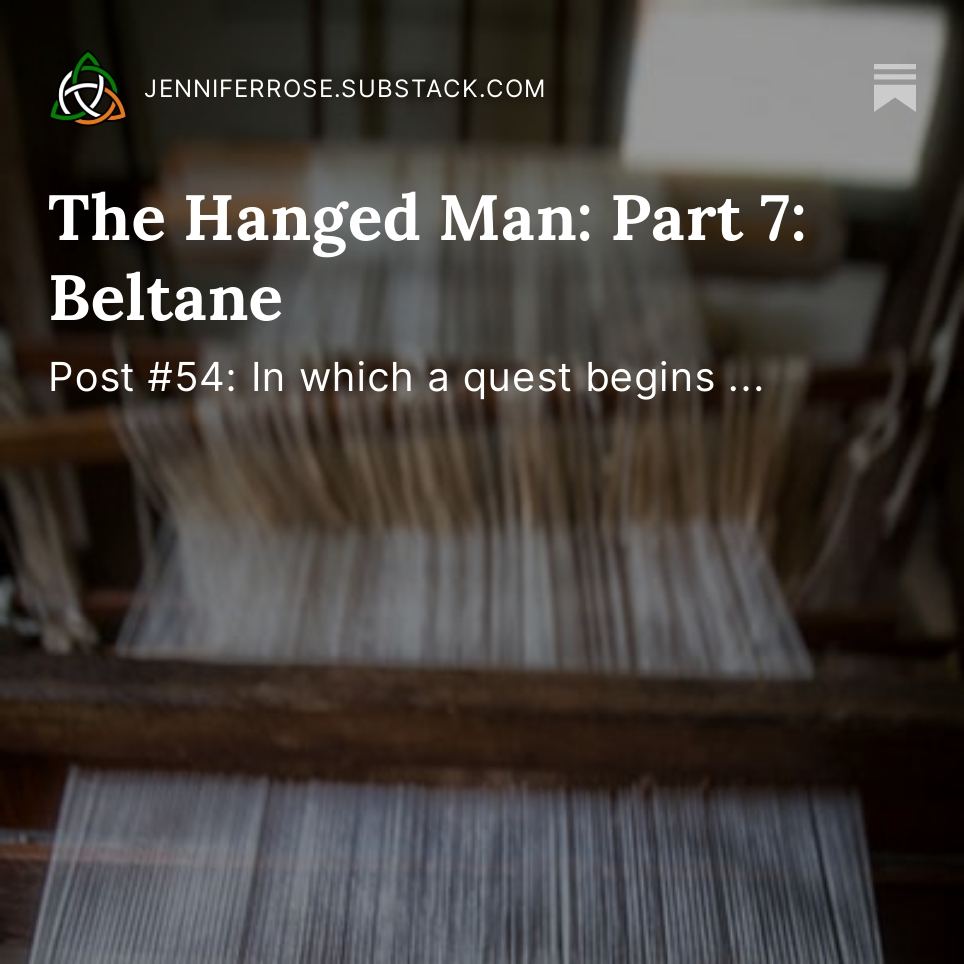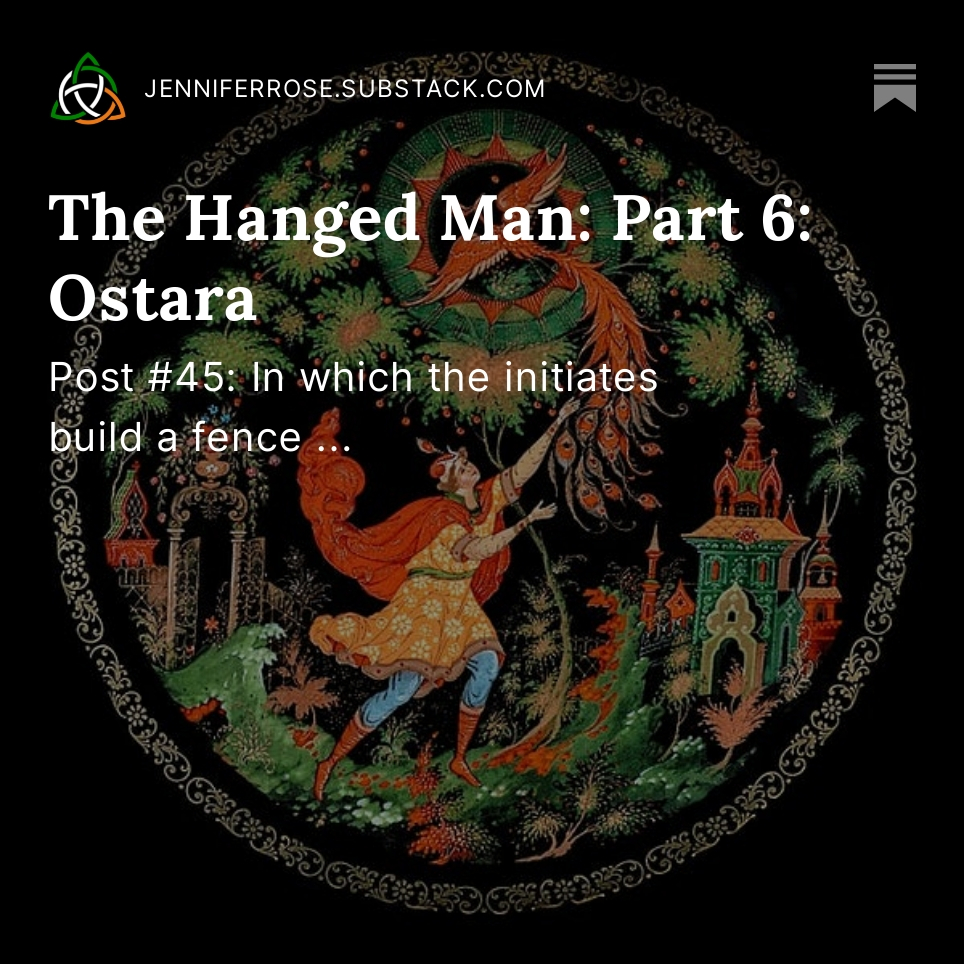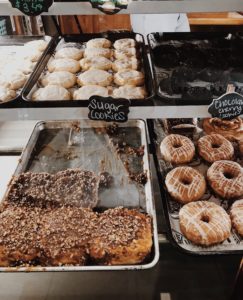by Jenny Rose | Jan 7, 2023 | A Flourishing Woman, Mind
Regular readers will know I struggle with money. The first time I wrote about it was here. About three months ago, I came across a creative prompt suggesting inviting Money to dinner and seeing what happened. I wanted to engage with it. I didn’t want to engage with it. I didn’t delete the article. It’s been sitting in the bottom of my Inbox sneering at me all these weeks. Finally, I decided to play with it …
I’ve unwillingly invited Money to lunch. She suggested it three months ago because she wants to see my new house. I’ve avoided it, tried not to think about it, even forgotten about it for days at a time, allowing the layers of my life to gently cover it, but then it shows up again, a small piece of grit in my psyche.
Finally I’ve reached a point where I’m ready to get it over with. She’s not going to get tired of waiting for me. She wants to see my new home, and she wants to have lunch. I can’t deal with the silent demand and the weight of her expectations any longer.
After all, it’s only a lunch, right? Two hours at the most.
Having made up my mind, I decide what will work best for me. I feel resentful, railroaded into doing something I don’t want to do. Why can’t I just say no and feel okay about it? Why do I feel I have to do this? I hate the feeling of being pushed, being badgered, being emotionally manipulated. Most of all, I hate how much I care about what she thinks. I hate my fear of her judgement.

Photo by Gemma Evans on Unsplash
I don’t want to do this. I really, really don’t want to do this.
But I feel I have to. I can’t possibly tell the truth. It’s lunch, for God’s sake. Why do I make such a big drama out of everything? What’s with the dread? Why can’t I just be a normal person, get it over with?
I eat alone, so my round, glass-topped table is small and there’s only one chair. I’ll bring another chair in. Which would be most comfortable for Money? She’s a small person. The second chair is an antique, but it’s not as sturdy or large as the one I always sit in. Would it be a subtle compliment to give her that chair, or is it too old-fashioned to be comfortable and welcoming?
I can’t put flowers on the table because the cats will destroy them.
I have cloth napkins that match the tablecloth I’m using; that’s good. That looks nice.
My kitchen, where the table is, needs work. We haven’t been in this house long. The kitchen is outdated and battered, the formica countertops stained and pitted. The stainless steel sink has old drips of paint in it I can’t scrub away and haven’t taken the time to tackle more resolutely. The refrigerator is too big and partially blocks the pocket door into the bathroom. The litterboxes are tucked under a bench along one wall near the door leading to the entry; I don’t yet have a good place to set up the cats. Their food and water are on a boot tray on the floor in the kitchen. The floor is lovely old pine with wide boards, scratched, scarred, stained.
I try and fail to see my home, my kitchen, my kitchen table, through another’s eyes. It so clearly needs work, but, to my shame, I don’t have the money to get the work done. I may never have the money to get the work done. Yet I’m grateful to have a roof over my head, and this lovely old house as a refuge from the world. I love it. I don’t want to have to defend it or feel ashamed I can’t give it the care it needs right now. It’s clean, at least.

New Home, May 2022
Since this invitation was not my idea, and Money is not a friend, I don’t feel I must make a meal. I basically eat meat and high-quality animal fat. I don’t have the time, skill, or money to make an elaborate meal. I’m afraid to make something simple, like a big beef stew. Whatever I do, I’ll feel it’s not good enough. We agree, Money and I, to get a to-go order from a local restaurant. That way, if she’s disappointed, it’s got nothing to do with me. I make sure to insist I pay for my own order. I don’t want any favors from her.
I know the cats are going to be on the kitchen counter, in the sink, walking across the stovetop. It’s what they do. There’s no way to keep them off the counters. Believe me, I’ve tried it all. One of them will probably choose the time we’re sitting a few feet away to have a big, stinky BM in one of the litter boxes with lots of noisy scraping and covering while we’re eating. Then they’ll jump out, scattering litter across the floor, come into the living room adjacent to the kitchen, and scoot their dirty bottom across the carpet and try to cover that. I’m mortified, just thinking about it. Do I pretend it’s not happening, like when you’re talking to a cute guy and your leashed dog squats to take a dump? Do I get up from the meal, scoop out the litter box, spray the scoot mark with stain remover and sponge it away while it’s still fresh and visible? I can keep them off the table, at least, while we’re sitting there eating. But there might be cat hairs.
Who am I kidding? There will definitely be cat hairs.
What will we talk about? That one is not so hard. I’m good at drawing people out. Most people love talking about themselves. A few good questions can get the ball rolling and I can stay safely concealed.
When Money arrives, I greet her at the door, hoping she doesn’t notice the rotted sill and threshold, the damaged door frame, and the fact that the outside door has gaps underneath it large enough to admit a squirrel in search of winter housing. I take her through the lovely, shabby, wood-lined sun porch, another door that has clearly been kicked in at some point, and into a narrow little hallway leading to the kitchen door. Everything is clean, swept, mopped, scrubbed. I give Money the tour of my living space. The cats come to investigate. (Does Money even like cats? I don’t know. I don’t want to know in case the answer is no. If she doesn’t like cats, one is sure to jump in her lap.)

Izzy & Ozzy; Fall, 2020
Money has picked up our order. I gather cutlery, plates, glasses. We sit down to eat. I am nervous, tense. The last thing I want to do is eat, but I do. I ask a couple of questions to get her talking and we chat in between bites. I wait for the curled lip, the sneer hidden within polite words, the fleeting contemptuous expression on Money’s face I know will be coming.
Money’s fingernails are unpainted. She’s wearing plain gold hoops in her ears. She’s dressed in unmatched leggings and a sweater. No makeup. I realize I expected something quite different …
And then my flow dried up and I came to a sudden stop, realizing I expected, in fact, my late maternal grandmother, who was always made up, bejeweled, well-coiffed, and wore little designer or custom-tailored (in Hong Kong) skirts and jackets and high heels. I expected her gold watch, expensive perfume, perfect manicure, and big, heavy rings. I expected her vivacious social cocktail chatter (gold monogrammed cocktail napkins). I expected her small brown eyes to turn mean, to tell me to act like a lady, to use my napkin, to keep my knees together. I expected the Jekyll-and-Hyde experience of watching her flirt, even when well into her 80s, and smile, and bat her nearly denuded eyelashes, still thick with mascara, with every male in the room and then the sharp little knife buried in a smiling comment or an aside about my looks, my conversation, my choices, and my behavior.
Gram, as we called her, had money. A lot of it. She was widowed young, inheriting considerable wealth from my grandfather. When her daughter, my mother, was divorced with two young children, Gram financed the family. By which I mean she demanded invoices, receipts, and bills, and gave Mom just enough to cover things and no more. No allowance. No lump sum. Mom had to ask specifically for every penny. Gram made her grovel. It was an exercise in humiliation. When Gram came to visit she hounded Mom about her marriage (Gram hated my father), her divorce, her stupidity and bad judgement. Mom went back to school to get a degree in order to get a job and support her children. We became latch key kids. I was assigned to care for my younger brother; we both were assigned to care for the animals, though the horses were sold during the divorce, taking the core of Mom’s happiness with them and leaving only bitterness and grief behind.

Photo by Hailey Kean on Unsplash
Every night, after I went to bed, I listened to Mom cry while she sat at her desk in her bedroom down the hall and dealt with the bills and finances or did coursework. I was often hungry because I felt guilty about eating food Mom would have to ask Gram to help pay for. I was 11 years old. Yet Mom remained loyal, thanking Gram for her grudging support, telling everyone how lucky we were to have her mother, who loved us, to help out. I don’t think she dared do anything else. Mom cared for her mother until the end of her life, when she died in a nursing home in her 90s.
Only one time did Mom break down in front me. “I’ve never pleased that woman one single day in my life,” she sobbed. It was true. She didn’t. And she tried every single damn day. I never pleased Gram a day in my life, either, but I didn’t try. I did not love my grandmother.
That moment of truth was never referred to again. By either of us. I’m sure, had I tried to talk about it later, Mom would have denied saying it. The world, especially her male relatives, saw Gram as charming, entertaining, gregarious, and generous. She could be all those things. But could also be abusive, toxic, selfish, and manipulative. She became (I discover), in my mind, the face and personification of Money. Money weaponized. Money withheld. Money rather than love or true connection. Money as a tool for power, control, and shame.
Every dollar of “help” Gram gave us was, as far as I was concerned, soaked in Mom’s blood and tears.
So, I’ve had a difficult relationship with money. Surprise, surprise. This exercise revealed to me the roots of my self-sabotage and conflicted feelings about “success,” which in my family meant plenty of money. In many ways I feel very successful, but I’ve always struggled financially. The work I’ve done and loved (being a librarian (yes, I have a degree); working with animals, children, the elderly; teaching swimming; lifeguarding; working in the public school system; working in hospitals; storytelling; and medical transcription) are not high-paying jobs in terms of money. The work of my heart, writing, has so far not earned me a single penny. All this contribution, all this creativity, all this love and care for animals and people and books, doesn’t count and is a matter of shame because I haven’t made much money. How sad and messed up is that?
My car is falling to pieces. My house needs work. I buy clothes at thrift stores. I’m a minimalist. I could use more money. I hate to admit it, but it’s true. It would help. A lot. But it wouldn’t fix everything I struggle with in life. I’m clear about that, too. And money is not love or success. Money is a tool, one I’ve mostly refused to consider learning to use. So I haven’t. What’s the point? I don’t have any! I’ll never have any. I don’t want Money to come to lunch because it’s wrong to need it and I do. I’m certain I don’t deserve it, because I’ve failed the family expectations, but I need it. Convoluted. Tricky. My personification of money in this exercise exposes a lifetime of shame about needing money, or any other sort of support or resource, to be honest. Which is ridiculous. Because the less money I have, the more I need it. And the more ashamed I feel. And so on.
At the same time, I’m proud of my contributions to the world. I’ve loved all the jobs I’ve had. I like to work. I like to volunteer. I have no plans to retire. I’ve been richly rewarded for my service in far more important and meaningful ways than monetarily. I’m proud of my self-sufficiency.
But those things won’t pay down the equity loan or fix the car. They won’t pay my bills.
Maybe I’ve never clearly seen Money at all, because I can’t look past my grandmother. Maybe Money doesn’t wear her face, but another I’ve never glimpsed. Maybe it’s time to grow up and out of that old anger and rejection of anything Gram stood for …
So this is the story of when Money came to lunch.
Questions:
- If you imagine an issue or feeling you struggle with as a person, what would that look like? What issue or feeling would you start with?
- What feelings are attached to your experience of money?
- How do you define success?
- What contribution are you most proud of? Is it the one that made the most money?
Leave a comment below!
To read my fiction, serially published free every week, go here:
by Jenny Rose | Nov 26, 2022 | A Flourishing Woman, Spirit
On Thanksgiving morning I started a four-day break from my job. I spent the first hour of my day in my favorite chair snuggling with the cats, drinking a cup of green tea, journaling, and doing my morning online check. Perky articles and posts about gratitude and thankfulness were inescapable, as was Black Friday advertising. All of it made me feel sour. The swing in our media and advertising between catastrophizing and toxic positivity, whatever has the potential to make the most money in the moment, is nauseating.

Photo by Roderico Y. Díaz on Unsplash
By nature, I make the best of things, though I’m not an optimist. I’m a wait-and-seeist. By long habit, I spin my experience of life in a positive way. I practice gratitude regularly.
But, honestly, sometimes life is damn difficult. And this fall has been extremely difficult. And let’s face it, many, many people on this planet are struggling in ways I can’t even imagine. That’s true every single day.
I could make a long list of things for which I am grateful. I do it all the time when I’m feeling down and out. That’s attractive and adult and fashionable, particularly on Thanksgiving.
But I could also make a list of things for which I am not grateful.
I know, I know, nobody likes a whiner or a complainer. It’s unattractive and unseemly. It’s entitled.
But is it really entitled or is that just a criticism we throw out because we don’t want to think about all the tough stuff? If we do think about it, we want to do it privately where no one will catch us being less than grateful and positive, as though it’s shameful to feel frustrated, exhausted, impatient, fearful, or upset. But aren’t the times when we feel those feelings also the times we most need support?
I’m not proposing to pitch a tent and live in the negative outback of life, but it is part of my experience, part of my landscape, and it certainly influences many of the more pleasant aspects of my life and my gratitude.
Isn’t gratitude more powerful when we’ve acknowledged our ingratitude? Is there some virtue in refusing to tell the truth about the things in our lives that don’t work? Some would say the perceived negatives, the hidden pain, sorrow, and difficulty, must not be acknowledged or displayed. What would the neighbors think? Dirty laundry!
I discovered, as I made my list, how difficult it was to refrain from putting a positive spin on things. I wanted to explain, to justify, to make exceptions, to soften my ingratitudes. I wanted to signal my shame.
The strength of my compulsion to be grateful, submissive, and positive was enough to trigger my wide streak of rebelliousness. So here, in no particular order; without apology, justification, too much detail, or any other anxious softening and sugar-coating, is my Thanksgiving 2022 List of Ingratitudes:
Planned obsolescence (greed meets waste)
Spammers and black hat hackers
Unclear, ineffective, hard-to-navigate websites (I’m talking to you, federal and state governments!)
Unavailable or unusable tech support (see above)
Irresponsibility
Broken public “education” system (education is not about what to think; it’s about how to think)
Unaffordable insurance
Rape culture and misogyny
Alcohol and nicotine
Postmodernism
Wokeism (Great roots are now cancerous and have become toxic “overrighteous liberalism” (quote from British journalist Steven Poole). Get a grip, people! Let’s work together for a level playing field for all rather than exercise our moral indignation!)
Denialism
People who want to win and be right (shut up and sit down!)
Institutionalized racism (can’t we do better than this?)
Homophobia (get over it, and mind your own business while you’re doing it!)
This list is not complete, but these are are some of the things that don’t work in our culture, in our world. We can do better. We could make life better for everyone.
Sour humor aside, I am truly grateful for all you readers, your comments, your shares, your presence. Thank you. Happy holidays!
To read my fiction, serially published free every week, go here:
by Jenny Rose | Oct 29, 2022 | Emotional Intelligence, Feelings, Love
Except I’m not. Balancing, I mean.
A few weeks ago I came across a quote: “Grief is just love with nowhere to go.” Backtracking through multiple sources, I ran it down to a woman named Jamie Anderson who wrote it in her blog, which is now gone. The quote went viral.

Photo by Joshua Earle on Unsplash
It hit me right in the heart.
I’ve written previously about my struggle with intense love that is not received. I don’t mean unrequited romantic love. I mean flesh-and-bone love, blood love, the helpless love and connection we feel for family.
My strategy all my life has been to divert the love I feel but can’t give to the intended recipient (at least not in a way I feel they receive and believe in it or even want it) to others who do need and want it. This practice relieves some of the pressure in my heart, but there are several ways it can go badly wrong. Plenty of people in the world will suck up all the love, attention, and support we give them, but have no thought, or perhaps no ability, of returning it. In this case, my painful, overfull heart becomes withered and empty and I have to detach the vampire I’ve attracted.
I’m not looking for a place to dispose of my love like it’s a worn-out sock. I’m looking for a place where it does some good. Because that’s at the heart of feeling love one can’t give – the futility of it. What’s the point of love if we have no place to give it, if love has nowhere to go?
There are places where I feel my love has been useful. Animals. Children. Hospice work. Emergency rescue work. But, aside from animals and my own children, none of these are intimate relationships sustaining me day-to-day. Animals, sadly, have shorter lifespans than we do. Children, inevitably, grow up and find their own lives, which may or may not include us.
I’ve been thinking about this quote for several weeks, intending to blog about it at some point, but always turning away from it into other subjects. It hurts to think about it. I know intellectually writing about pain helps, but loyalty to those who refuse my love stops me. Or maybe shame? Or maybe guilt? (If a family member won’t accept our love, surely the logical conclusion is we’re a terrible person?) Also, I don’t want to hurt anyone’s feelings, or be unfair, or humiliate another person.
I can always find something to write about. I’ve been posting weekly for six years. But there’s much I do not write about. Too painful. Too intimate. Too risky. Too messy.

Photo by Jason Blackeye on Unsplash
Sometimes life is like a boxing match. I have good stamina, and I’m dogged as hell. I’m organized and efficient. I try to think clearly about my choices. I’m thoughtful. But every now and then life knocks me down. Hard.
Usually I cope with vigorous exercise, writing, getting a good night’s sleep, and processing with a friend. I get back on my feet and keep going.
But every few years the blows keep coming, hard and fast, unexpected hooks and jabs.
This has been one of those times. I’m nursing my third upper respiratory infection in four weeks. Not COVID, but one of the many other plagues circulating this fall. I’ve once again pulled out the essential oil, the powdered vitamin C, the elderberry and echinacea tea, the nasal spray, the cough and cold medicine. I don’t usually take medication of any kind, but on this third round I feel so bruised and battered I’m choosing to. I’m tired out.
In between this virus, which arrived Thursday night, and the last one, which departed Monday, we discovered our dirt-floored cellar was ankle deep in water due to several inches of recent rain which caused some flooding. It’s going to take more than a thousand dollars to fix it.
Then, yesterday (Can it only be yesterday? It feels like weeks.) I was informed about the illness and injury of a family member, one of those people I love most in the world who is unable to receive it and has amputated me from their life. Now, a long way away from me as I sit here in Maine with a Kleenex box, another family member (another of my dearly loved ones) is carrying the whole situation on their shoulders: the hospital, surgery, legalities, finances, paperwork. My presence would only exacerbate the situation and make everything worse. I know it. The family member managing the crisis knows it.
So here I sit, wretched, broke, sick, and I can do nothing – nothing. A lifetime of petrified love weighs like a stone in my chest. It has nowhere to go. It never has. It’s not useful. It’s not wanted. But I can’t stop feeling it. It’s part of me.
And I’m down for the count. I’m all the way down and nothing in me is ready to get back up. My eyes are swollen. I can’t stop crying. I don’t know where the cold begins and the grief ends. All this grief, a lifetime of grief. It feels endless, bottomless. I don’t think there are enough tears in the world to wash it away. I can do nothing but wait for news and try to be a long-distance support to the one who will accept my support. I can’t seem to get and stay well. I can’t fix the cellar. A plumber in hip boots with a new sump pump will do that early next week.
How can the truest, deepest love we feel be refused and rejected?
Rhetorical question. I don’t expect an answer. I’m sure I’m not the only one who has ever asked that question. Some things just can’t be understood. They’re not fair. They’re not explicable. They’re just life. I learned some time ago to cease arguing with what is.
And what is, right now, is grief. I can’t contain it, control it, avoid it, distract myself from it. I won’t share it, except in words. I’m simply letting it wash through me, surrendering to it. Maybe that’s what I need most today. Maybe the laundry, emptying the trash (all that soggy Kleenex), my usual weekend posting and publishing, raking leaves, dumping the compost, washing dishes, and all the rest of it doesn’t matter. Maybe I can’t get back on my feet until I’ve chosen to just stay down first.
How long do we have to cry to drain a lifetime of grief?
Don’t tell me. I don’t want to know.
This is not my usual kind of post, but it is a stay down, raw, naked one. It’s what I’ve got this week. It’s the best I’ve got.
On another note, I am expanding the site. I’m adding excerpts from my books to The Webbd Wheel page. Scroll down past the overview for the excerpts. If you’re intrigued, you can go to my Substack page and read for free as I serial publish my fiction. You’ll find extensive archives, so you can read from the beginning if you wish.
To read my fiction, serially published free every week, go here: 
by Jenny Rose | Sep 11, 2022 | Choice, Power
Probably every child is told we all have to do things we don’t want to do.

Photo by Cristina Gottardi on Unsplash
Children are concrete, and I was no exception. When I heard we all have to do things we don’t want to do, I thought it meant that’s what life was supposed to be about, a kind of slavery to all those things we don’t want to do. No one talked to me about balance, or doing the things we do want to do.
It made life seem like an unhappy business, years and years of unending duty, responsibility, and doing what I didn’t want to do. No recess. Or maybe what I really wanted to do was bad and wrong? Maybe I should want to do what I didn’t want to do. I wasn’t sure. A part of me went underground. I didn’t want anyone to know how bad I was, how flawed. I worked hard at the things I didn’t want to do and hid the things I did want to do, in case they were wrong.
But I couldn’t conceal the feeling of wanting and not wanting from myself. I used to make hidey holes in whatever house we were living in at the time and go to ground with a book, but I always felt guilty. I wanted to read. Doing what I wanted to do was bad. I should have been helping my mom do all the things she didn’t want to do.
The pronouncement that we all have to do things we don’t want to do is stated as a Cosmic Truth, especially as an adult tells it to a child. It’s loaded with feelings and experience a child can’t possibly understand, but the subtext was clear to me:
Life is not much fun.
I can’t resist picking apart Cosmic Truths as an adult, and as I think about this one it occurs to me it really has to do with personal power more than wanting or not wanting. It’s not framed in terms of personal power because our emotional intelligence is so low. Making choices based on whether we want to do something or not is childish. Power resides in the act of choice, not in the wanting or not wanting.
Steering our lives solely by our desires is hedonism, a belief that satisfaction of desires is the purpose of life. Desire, though, is so shallow, so fleeting. And it’s never permanently satisfied. No matter how well and pleasurably we’ve eaten, we’ll be hungry again. Desire is a treadmill we can never get off.

This is not to say we shouldn’t ever choose something we want or say no to something we don’t want, but our desire is easily manipulated. That’s why advertising works. If we can be easily manipulated, we’re not standing in our power. Addiction is based, at least in the beginning, on wanting and not wanting.
A more useful question than What do I want to do? is What would be the most powerful thing to do? We might want to eat a carton of ice cream, but a walk feeds our health, well-being, and thus personal power much better. After all, one carton of ice cream leads nowhere but to another. Personal power can lead us to joy and experience a carton of ice cream never dreamed of.
- If we don’t choose to do difficult, frightening, or new things, we’ll never grow.
- If we don’t choose to take care of our bodies, they won’t function well.
- If we don’t choose to be self-sufficient and resilient, we’ll be dependent.
- If we don’t choose to learn anything, we’ll remain ignorant.
- If we don’t choose to plan ahead, prepare, or manage consequences, we diminish our choices, waste resource, and weaken the contribution we’re capable of making.
- If we don’t choose the responsibility of commitment and making choices, someone else will make our choices for us.
And so on.
I’m changing the frame. I’m less interested in what I want and what I don’t want and more interested in how my choices affect my power, and the power of those around me. I’m willing to do what I don’t want to do if it’s a step on a road leading to integrity, power, healthy relationship, or anything else important to me. At the same time, I can exercise my right to say no to things that won’t take me where I want to go.
It’s about power, not desire. Any three-year-old can want and not want. It takes an adult to manage a healthy balance of personal power.

Photo by Deniz Altindas on Unsplash
by Jenny Rose | Aug 20, 2022 | Connection & Community, Emotional Intelligence
Trust: Firm belief in the reliability, truth, ability or strength of someone or something (Oxford Online Dictionary)
Mistrust: General sense of unease towards someone or something
Distrust: Specific lack of trust based on experience or reliable information
Leo Babauta recently published a piece on practicing trust which has given me much food for thought.
Trust is an uncomfortable subject for me. For most of my life I’ve considered myself to be shamefully distrustful. As I’ve learned emotional intelligence, I’ve realized I have plenty of good reasons for my mistrust and distrust, but there’s still a part of me that feels I should be more trusting, more willing to give others a second, or third, or hundredth chance, less guarded, more open, more forgiving.

Photo by Liane Metzler on Unsplash
Except I know intellectually forgiveness does not mean an automatic reinstatement of trust.
In my heart, I feel like a bad person, especially a bad woman, because throughout my life people who say they love me have appeared to be hurt by my lack of trust. Yet those same people have given me reasons not to trust them.
When I wind up in these confusing emotional cul-de-sacs, I blame myself. I’m being too dramatic (again). I’m being a bitch. I’m mean. I can’t love, or let anyone love me. (Does trust = love? Does all love automatically come with trust?) When I explain the specific events leading to my mis- or distrust, I’ve frequently been told the other party doesn’t remember saying what they said or doing what they did. This implies I’m nitpicking, ridiculously sensitive, keeping score, or even making it up. I wonder if I’m being gaslighted, or if I’m just not a nice person.
Years and years ago I made a rule for myself: give every situation or person three chances before deciding not to trust. It still feels fair to me. Sometimes things happen. We have a bad day. We say hurtful things, or don’t keep our word, or make a boneheaded choice, breaking trust with someone. I know I’ve done it, and I’d like to be given the benefit of a doubt.
The benefit of a doubt is fair, right?
I still follow that rule. It feels appropriately kind to others and like good self-care. Yet I feel guilt nearly every day over the people in my life who I want to trust, feel that I should trust, and don’t trust.
Babauta’s article specifically addresses signs of distrust of ourselves, and some ideas about practicing self-trust. I never connected problems with focus, fear or uncertainty, procrastination or indecision with lack of self-trust, but I can see they might be. If we don’t trust our priorities, resilience, or choices, it’s difficult to be decisive or take risks with commitments and problem solving.
If we don’t trust ourselves to cope effectively with sudden changes and reversals and frightening situations, uncertainty and chaos disable us, making us vulnerable to anyone or anything promising relief, certainty, or help.
The boundary between trust in ourselves and trust in others is permeable. If we define ourselves, as I do, as “having trust issues,” presumably that includes issues with ourselves as well as others.
It makes me shudder to imagine living with no feeling of belief in the reliability, truth, ability or strength of anyone or anything. How could anyone sustain such an emotionally isolated condition, not only from those around them but from themselves?
I do have people in my life I trust. Is it possible I don’t have trust issues? Is that just a polite, apologetic, and roundabout way of avoiding a direct “I don’t trust you?”
Do I have to answer that?
It’s true I trust far fewer people than I distrust.
But it’s also true I give people and situations a chance. Three chances, in fact. At least.
Why does it seem so cruel to tell someone we don’t trust them?
Trust, as I experience it, is not all or nothing. I might trust a person to be kind and caring but never allow them to drive me anywhere. I might trust a person with money but never trust them to be on time. I trust myself to be there for others, but I haven’t trusted myself to be there for me.
Consumerism is about distrust. We’re actively groomed to distrust ourselves. Yesterday I was laughing with a friend about articles on MSN. There was an article about trends and fashion in decorating, as though it matters. Shiplap is out. White kitchens are out. Accent walls are out. Then there was an article about how to properly fold plastic grocery bags. I’m not kidding. Did you know you’ve been storing plastic grocery bags the WRONG WAY all these years? How could you be so incompetent? A capitalist culture only survives as long as people buy things, and advertising (and a lot of other media) is about the ways you need to improve, do it right, be better.
Advertising is manufactured distrust. We’re inadequate, but a widget would make us better. We buy, and we discover we still don’t feel good enough, and another ad tells us we need a nidget. So we buy that, but then we see a gidget on sale that will make us even better …
Who benefits most from our lack of trust in ourselves?
I believe information is power. I believe education is power. I believe in science, data, and critical thinking. I trust those things.
Who benefits most from the breakdown of public education, the demonization and gutting of scientific organizations and communities, manufactured misinformation, manufactured disinformation, and “alternative facts?”

Photo by roya ann miller on Unsplash
The Center For Nonviolent Communication says trust is a human need; it’s listed under connection needs. When our needs aren’t met, our health (mental, physical, emotional) suffers. If we are unable to trust we’re wide open to conspiracy theorists, ideologues, authoritarians, and other abusers and manipulators. Predators happily gorge off the results of manufactured distrust.
This is a big, big, problem, because it stands between us and managing things like climate change. Which, depending on who you talk to, isn’t even real because science has been the target of so much manufactured distrust.
One day, sooner rather than later in the Southwest, a switch won’t deliver electricity and a faucet won’t deliver water. Scientists have been talking about consequences of climate change and drought in the area for decades. It was one of the reasons I left my lifelong home in Colorado and came to Maine nearly eight years ago. A combination of manufactured distrust, denial, and the misplaced priority of winning the next election have effectively stopped any kind of collaborative or cooperative problem-solving around water usage throughout the Colorado River watershed, and here we are, on the brink of multi-state disaster that will affect the whole country.
Trust is a choice we make many times a day. Do we trust our families, coworkers, and friends? Do we trust the headlines we read, the news anchor we hear, or the algorithms providing us with “information” on social media? Do we trust what lands in our Inbox or the unfamiliar number calling us? Do we trust the oncoming car will really stop so we can safely walk across the busy street?
More importantly, do we trust our own instincts, feelings, and capability? Do we actively teach our children to trust theirs? Do we encourage our friends and loved ones to trust themselves? Or do we tell people they have it wrong, it didn’t happen, they’re being ridiculous, they don’t understand?
Choice comes with consequences and responsibility. Choice is dynamic; do we trust if we make a choice that doesn’t work out the way we hoped, we’ll choose again? Do we trust ourselves to be wrong and learn something before we choose again? Do we trust our ability to problem solve, bounce back, and do the best we can most of the time?
I suppose somewhere between having no trust at all and trusting everyone and everything lies a fine line of willingness to trust. We could approach new situations and people with curiosity and an open mind, be big enough to give the benefit of the doubt, and have healthy enough boundaries and the self-trust to disengage when we have evidence and experience indicating our trust is misplaced.
The first step in rejecting manufactured distrust is building trust in ourselves and demonstrating our own reliability, truth, ability and strength as we engage with others.

Photo by Ryan Moreno on Unsplash















